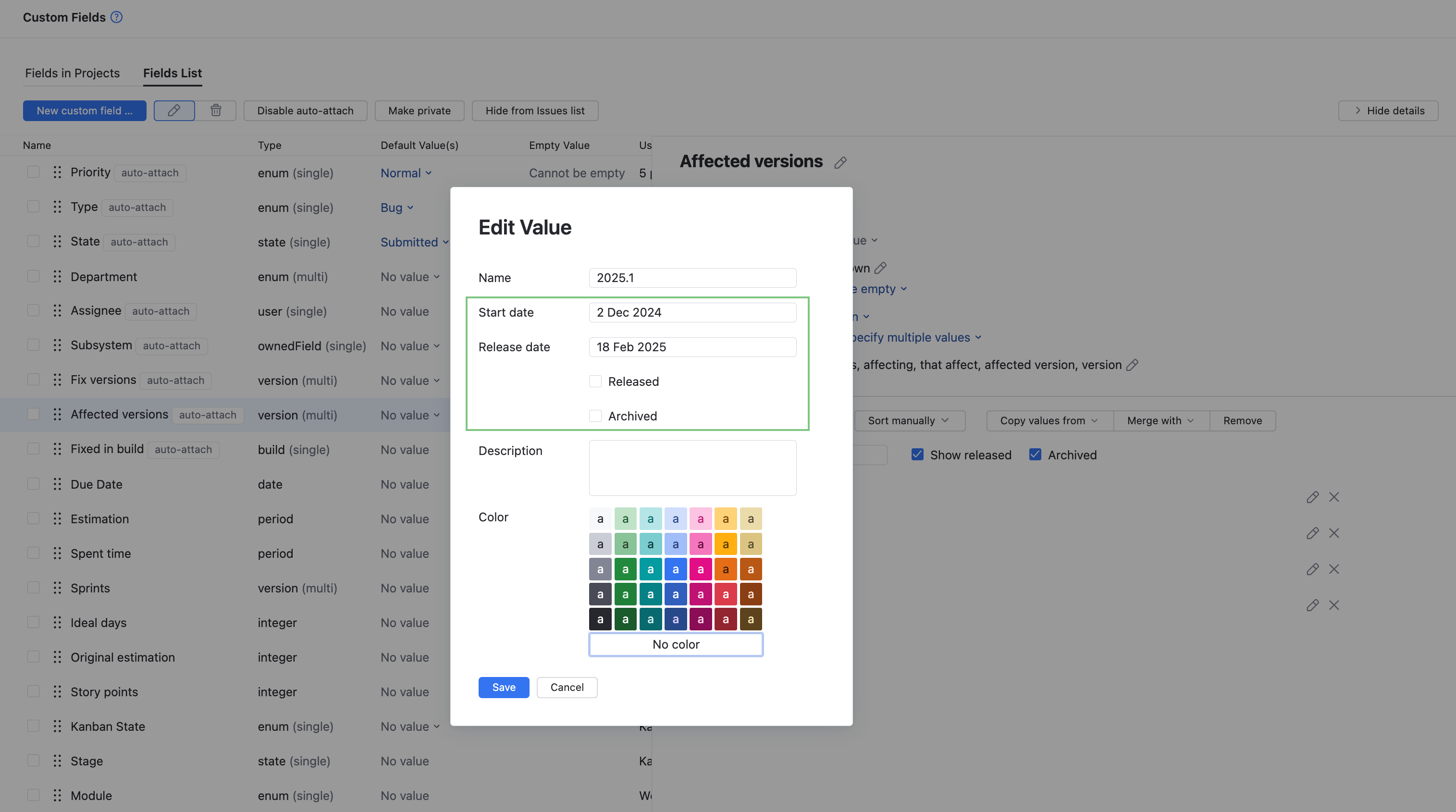Value-specific Settings
Enumerated sets of values have properties that are assigned to each value in the set. You can edit a standard set of properties for any enumerated set of values.
To display these settings, click the Edit icon next to a value in the set.

Basic Settings
The following settings are available for all field types.
Setting | Description |
|---|---|
Name | Assigns a name to the value. |
Description | Adds a description of the value. This information is displayed in an info tooltip when the corresponding value is selected for a field in an issue. |
Color | Assigns a color scheme to the value. This setting changes the appearance of the custom field based on the color that is assigned to the current value. |
Type-specific Settings
Several field types have extended properties for values in the set. These properties are only visible when you edit the set of values that is used for the specified type.
Setting | Field Type | Description |
|---|---|---|
Archived | enum, ownedField, state, version, build | Indicates whether the value is archived, stored as a Values that are marked as archived are not available in the drop-down list for custom fields. This means that users cannot set the value for the field to an archived value directly in the user interface. If one or more values that are currently assigned to the field are archived, a user can clear the selection to remove these values from the field. Archived versions are still available to commands, workflows, and the REST API. This means that you can use commands to add or remove archived values or update these values programmatically. |
Assemble date | build | Stores the date when the selected build was assembled as a |
Owner | ownedField | Stores a reference to the user who is responsible for the subsystem as a Use this setting to associate a specific user with each value in the set. You can then use this field to set values in custom fields that store a |
Release date | version | Stores the release date as a If you have an Agile board with sprints linked to the values of this custom field, this property links to the end date of the sprint. |
Released | version | Indicates whether the version is released, stored as a This property affects the sort order in the drop-down list for the default Fix versions and Affected versions fields.
|
Resolved | state | Indicates whether the issue is considered to be resolved when it is assigned the corresponding value in this field. This value is stored as a |
Start date | version | Stores the start date as a If you have an Agile board with sprints linked to the values of this custom field, this property links to the start date of the sprint. |
Additional Controls for Version Fields
When you view or edit the set of values for a field that stores a version type, these controls let you find and update specific values. These options have no effect on the behavior of the custom field.
Control | Description |
|---|---|
Filter versions | Filters the list of values to match the filter criteria. |
Show released | Toggles the visibility of versions that are marked as released. |
Archived | Toggles the visibility of versions that are marked as archived. |
Sort by | Sorts the list of values by name or release date. |